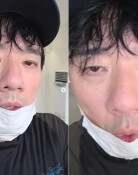[Opinion] Paper Party Members
[Opinion] Paper Party Members
Posted September. 06, 2005 07:13,
Mr. P, a representative of K city in the Seoul metropolitan area, was reported to the police for registering 38 residents to a political party and paying their party membership fees for 10 months. P was exposed by the National Election Commission (NEC) and found to be recruiting party members to be elected as the party candidate for the local elections scheduled for May next year. Reportedly, there are numerous people around the country who are focusing on securing party members. It is fair to call this a war for recruiting party members.
In the ruling Uri Party, the number of party members who pay membership fees rose to about 600,000 by the end of August from 77,000 at the end of last year. According to the NEC, the Grand National Party saw its figure increase from 3,800 to 240,000 over the corresponding period. The increased number of party members is desirable in party politics. The problem is that those party members are not true members who actually pay membership fees and actively participate in party activities. They are no more than one-off activists working for those who paid membership fees for them. They can be called paper party members in that they exist only in their application documents or bubble party members in that they disappear after elections.
The biggest reason why paper party members increased was because the election law was revised so that local councilmen as well as heads of local governments can receive party nomination. One has to secure a larger number of supporters among party members to win party elections. As a convenient way to do this, there is an increasing tendency of securing supporters by paying membership fees for them. Moreover, the tendency seems to be further increasing, as local councilmen are expected to get 50 million to 70 million won in annual compensation with the post being salaried. Considering that many people are forced to retire in their mid-40s, it is only natural to be attracted by a post which guarantees a high salary for four years.
Many local representatives are raising their dissenting voices, saying that party nomination system reduced local councilmen to inferiors of National Assemblymen and elections to spending spree. By contrast, the political circle, the ruling party in particular, argues that the party nomination system for local representatives is necessary for vitalizing party politics and bottom-up democracy. However, that does not seem to make sense, given the current status. It is nonsense to talk about bottom-up democracy with paper party members.
Song Young-eon, Editorial Writer, youngeon@donga.com




![[김순덕의 도발] ‘李부터 연임’ 개헌, 이 대통령은 가능성을 말했다](https://dimg.donga.com/c/138/175/90/1/wps/NEWS/IMAGE/2026/01/16/133172656.1.jpg)

![“설거지해도 그대로”…냄비 ‘무지개 얼룩’ 5분 해결법 [알쓸톡]](https://dimg.donga.com/c/138/175/90/1/wps/NEWS/IMAGE/2026/01/15/133164664.3.png)
